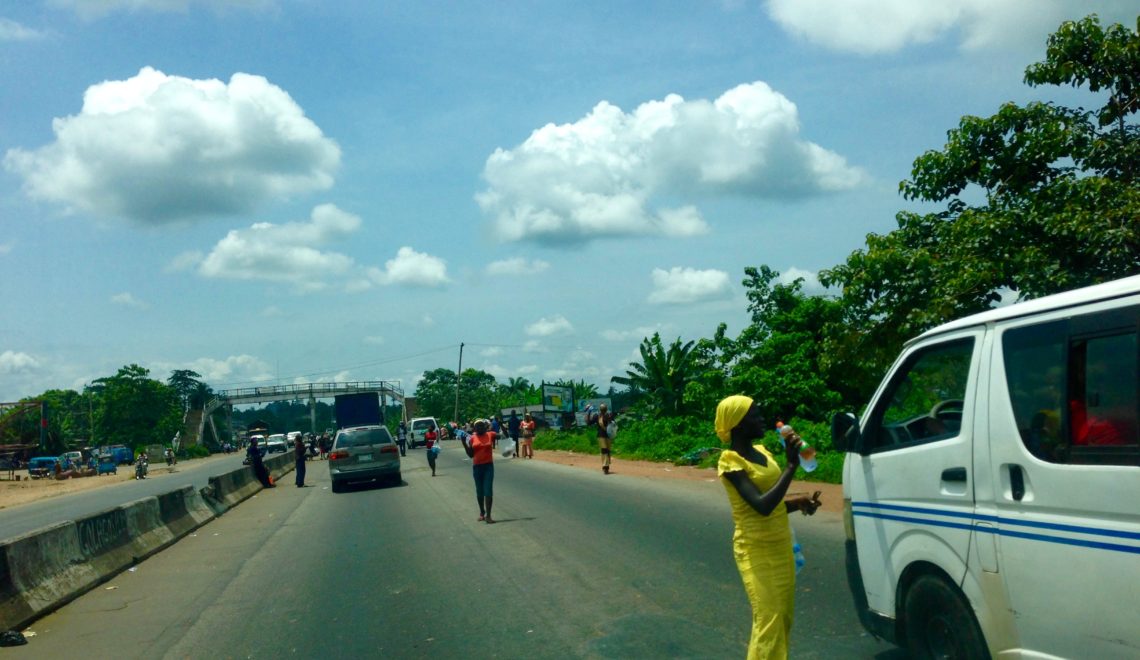
On this raging hot Friday afternoon, I am in a rickety bus traveling along the Ile-Ife – Ibadan express way. By express, one would expect the journey to be quick and smooth. But no. It looks like a scene from Mad Max: Fury Road. The road is a combination of long stretches, and series of bends, thereby occasionally causing an angry driver to slow down as the road now reveals only the part of itself directly ahead. It’s a short distance journey, one I have taken countless times. But in this moment, with everything in me tumbling against each other as the bus sinks into one pothole after another, the road seems to unfurl in excruciating slowness. I feel dizzy and for a moment thankful for my window’s seat, just in case I end up throwing up.
I see towels with designs of animals, currencies, and celebrities, hung on the wall. There are small stalls along the road with people selling their wares: clothes, electrical appliances, plastic buckets, shoes—it’s two days to Christmas. People jostle each other with determined faces as though on a mission to redeem time. Oh, there they are, the small tubes with yellow caps. When I was a child, besides the long array of brown roofs, I knew I had arrived at Ibadan when I start seeing men with Àbóníkí balm tubes fastened between their fingers—with other road side vendors selling boiled eggs tightly packaged in small transparent nylons, phone chargers, and bread and akara sellers running after passengers in buses. But the men chanting Àbóníkí Àbóníkí to your face. It’s like selling puff-puff in a darn pharmacy. I have always found this amusing. Imagine a man who, on his way back from a trip, buys Àbóníkí and takes it home to his wife. You mean you’re alright? No cold? Oh, that’s a shame. Look, look what I got you. Anyway, you should keep it at home, you know, for when you hit your head against the wall.
It feels like an endless journey. Where is this driver passing for Chrissake? ‘How far is the park, please?’ I ask the man sitting beside me. We have been sitting side by side for almost an hour, breathing the same air, but haven’t spoken a word. Perhaps he is familiar with this route and can tell the distance to the park. ‘It’s close,’ he replies. ‘Alright,’ I say, returning my gaze to the road. My vision is a blur, as though I have just completed a marathon, only that I have not done anything but sit. ‘So where do you live?’ Oh no, don’t do that. I only asked you a question and you’ve answered me. Leave me alone now. Lagos, I answer, almost a whisper.
‘You’re spending Christmas in Ibadan?’ ‘No,’ I say, my eyes still on the road. I’ve only come to Ibadan to see a friend and will be on my way to Lagos in few hours. ‘So where in Lagos do you live?’ On occasions when I don’t want to talk to strangers, I would tell them, with enough politeness that I can muster at that point, ‘Sorry I don’t feel like talking now,’ and go back to minding my business. But here I am, not telling Mr. Man off, not interested in talking either. ‘Isolo,’ I reply. ‘Really?’ he smiles. ‘I live in Ikotun. Pretty close.’
Silence.
I will be in Lagos tomorrow, he says. Will you invite me over for Christmas? Whoa, whoa what’s going on here? ‘No, you can’t come.’ He smiles. I force a smile, accompanied with you-can-as-well-keep-quiet-now look. Of course I know he is joking, but I don’t care. No, he can’t come. And I am not in the mood for jokes, does he not see that? But why won’t I invite him? he presses. I am about to say I’m a terrible host, is why. But the words stop in my throat. Come on, you’re not a terrible host, I hear a voice in my head say. Oh, well, not a great one either. I know I know I know I know, thanks for the reminder. It’s that habit of always wanting to explain things that is rearing up again. Or not saying what I really feel because I don’t want to hurt the listener. I thought I had let it go a long time ago. I don’t even owe Mr. Man anything. Why not say, Oh, I won’t invite you because I’m not interested in having you around. And isn’t it okay to say no without giving a reason? Why was I going to say I’m a terrible host? Why make it about me? What is this—stupidity?
Finally, the driver rounds the bend into the park. After a series of coughing spurts, the bus stops. Passengers disembark into a cloud of dust and exhaust fumes. I take a few steps away and suddenly feel better. No nausea, no headache, no wooziness. “Actually,” says Mr. Man, “I should have asked if you were going to invite us. You see, I got married last week.” “Oh, how sweet” I say, smiling. Congratulations. “My name is Adam,” he says, stretching his hand for a handshake. It is firm.
I reached out to help with his luggage as he moves to the other end of the park. ‘Don’t worry, thank you.’ Did I see his wife? he asks. There was a lady he was talking to on the bus, but she had alighted at some point before we reached the park. ‘Oh, that lady that was sitting beside you?’ He nods. Yes, yes, I reply. I saw her. ‘Actually,’ he continues, ‘she wasn’t putting on her wedding ring because the one I got was too big for her. So we’re going to change it…’ And so Mr. Adam goes on and on about the ring and the wedding, and all I can think is: How sweet, but do you really think I noticed that there was no ring on her finger? God, wasn’t I busy looking at trees, cars and dealing with nausea to notice if she had fingers? Is this post-wedding excitement or some effort to prove their marital status to me? What is my business? ‘I see,’ I say, when he finally stops talking. But I don’t see anything at all.
I start to walk back to the road. Bodies everywhere: angry faces, laughing ones, some leaning on handrails of buildings, okada men calling out to people, women selling chin-chin, popcorn and things people buy to keep their mouth busy on the road. Always interesting watching the way a crowd of people twirl and change directions, like the tides. Like how the ocean grows and grows and crashes at the shore, I often wonder how much our lives collide without us being aware.
So, what if she does not have a ring? What if they are not married? What if they are married? What if—what is my business? After all, I’m only a stranger. This urge to explain oneself isn’t always necessary, I’ve come to learn. Not referring to myself as a bad host felt like a sort of little triumph for me in that moment, and it made me happy. Progress. Being a, former, chronic explainer myself, I walk away thinking of how, although strangers, we are alike in that way.
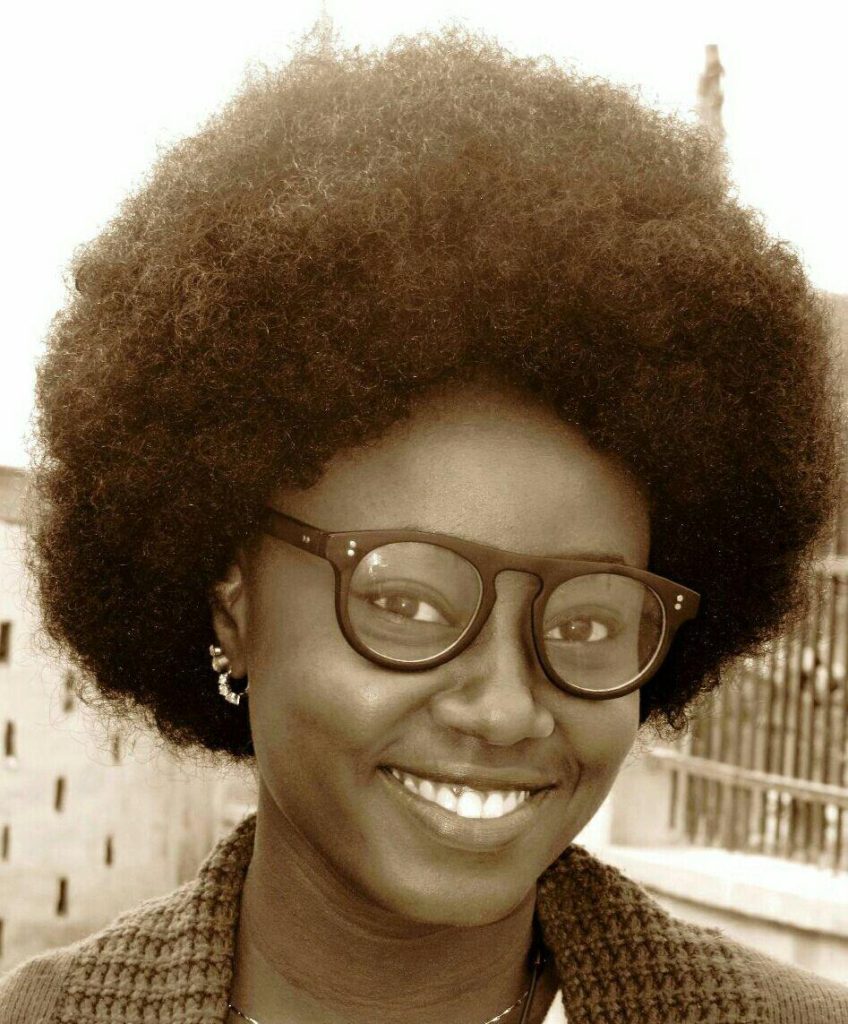 Kemi Falodun is a lover of words and fine sentences. She is a short story writer and was recently shortlisted for the The 2016 Awele Creative Trust Award chaired by Brian Chikwava for her short story titled ‘Waiting’. Also, she is an associate editor for Sarabamag. Her work explores themes on loss, memory and relationships. She lives in Nigeria.
Kemi Falodun is a lover of words and fine sentences. She is a short story writer and was recently shortlisted for the The 2016 Awele Creative Trust Award chaired by Brian Chikwava for her short story titled ‘Waiting’. Also, she is an associate editor for Sarabamag. Her work explores themes on loss, memory and relationships. She lives in Nigeria.
Photo credit: Juju Films
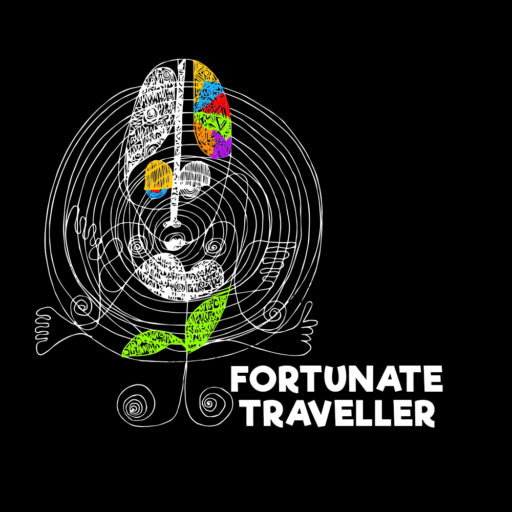
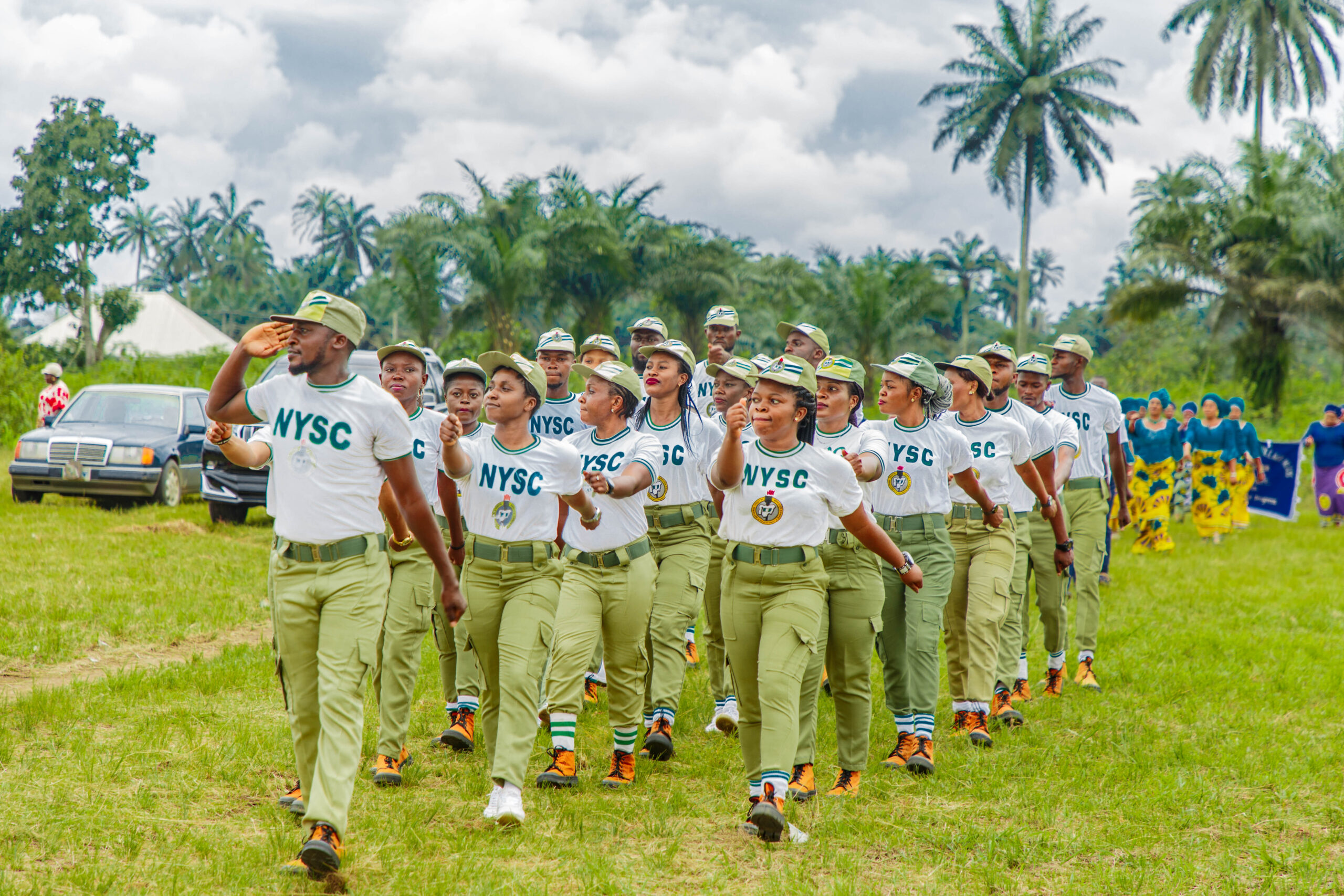
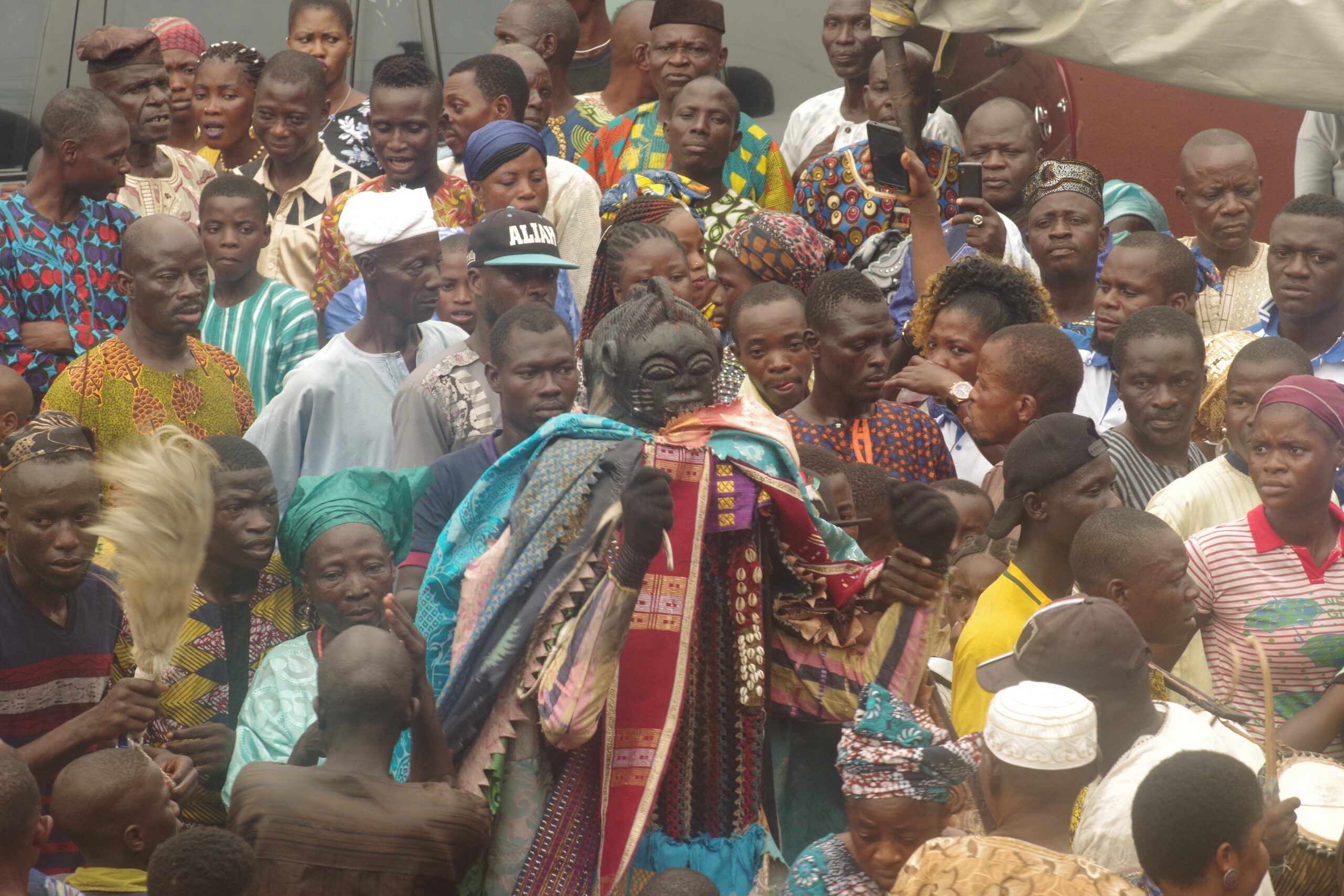
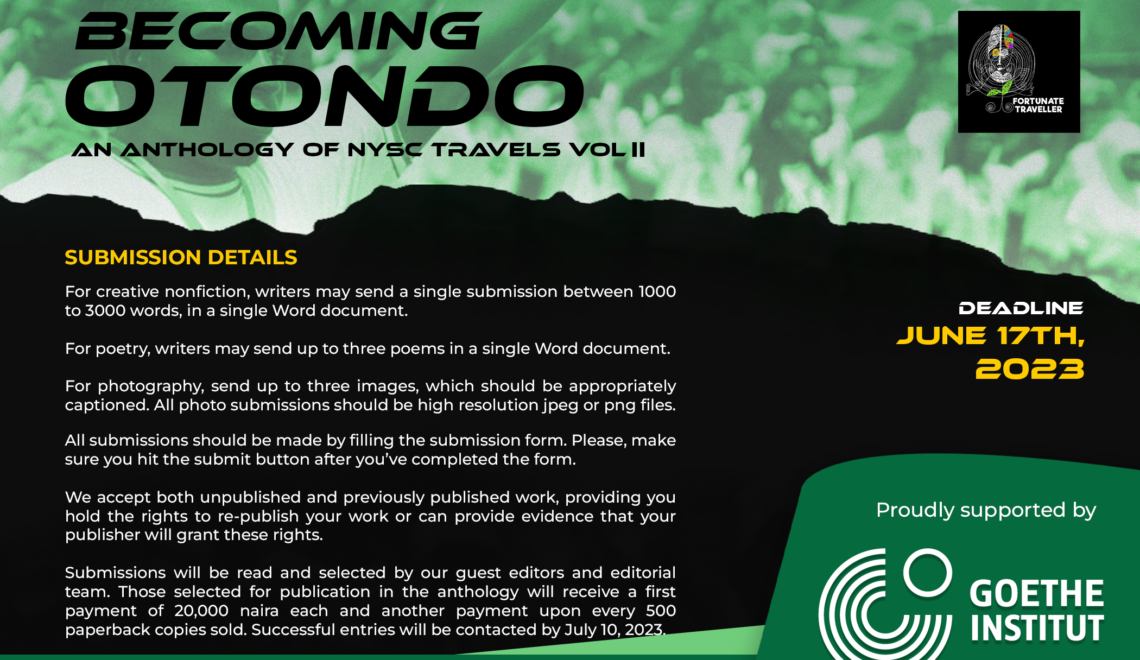
Interesting read, especially for one like me who is a female and also familiar with the Ife-Ibadan express. Your descriptions are apt and really pictorial. However, I think that last paragraph should have been left out. It is anticlimactic. The story would have ended at a high point if you had stopped at ‘But I don’t see anything at all.’ however, the consequent paragraph brought didn’t take away from the story like the last.